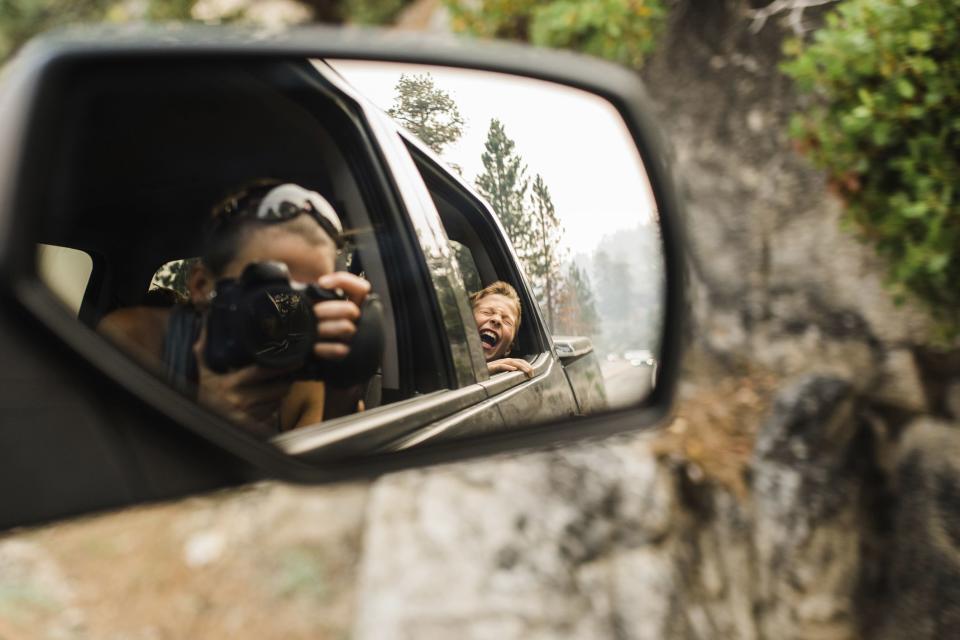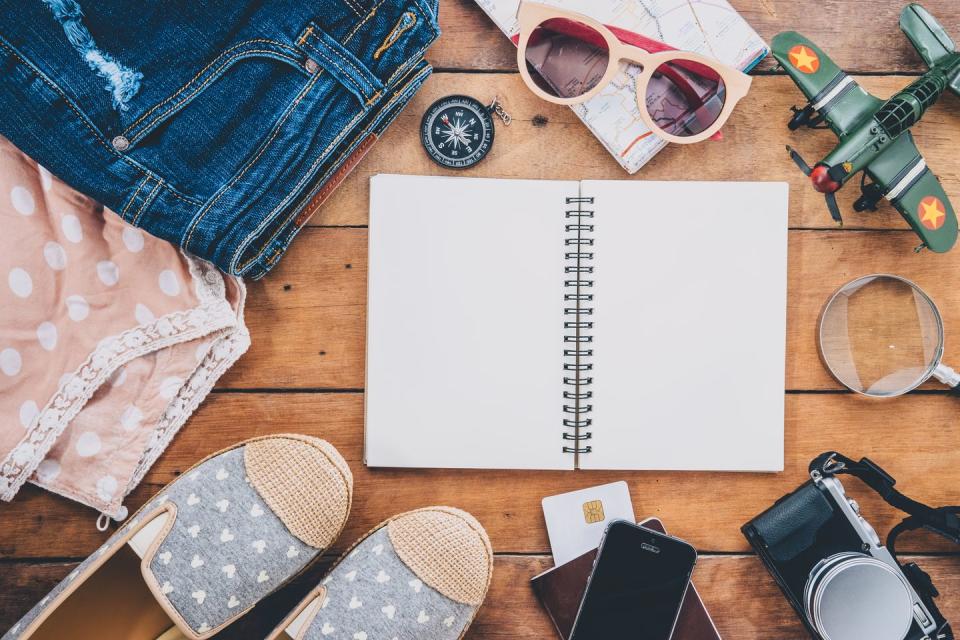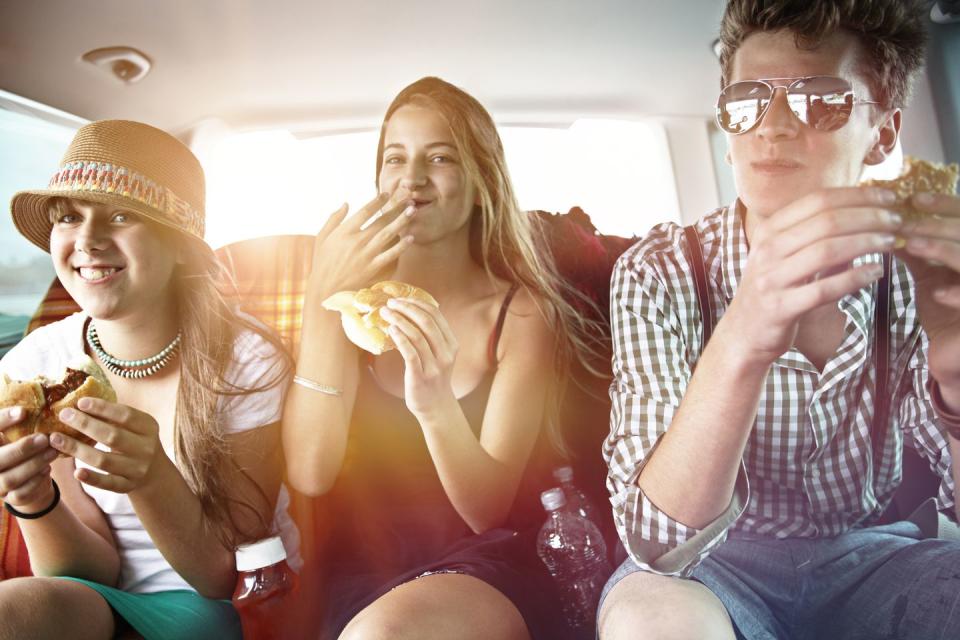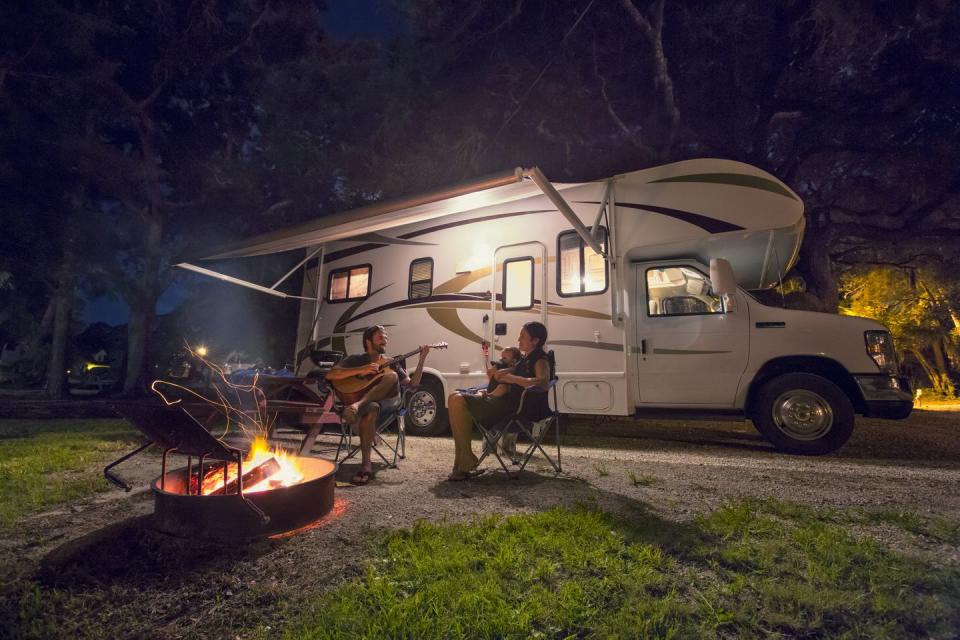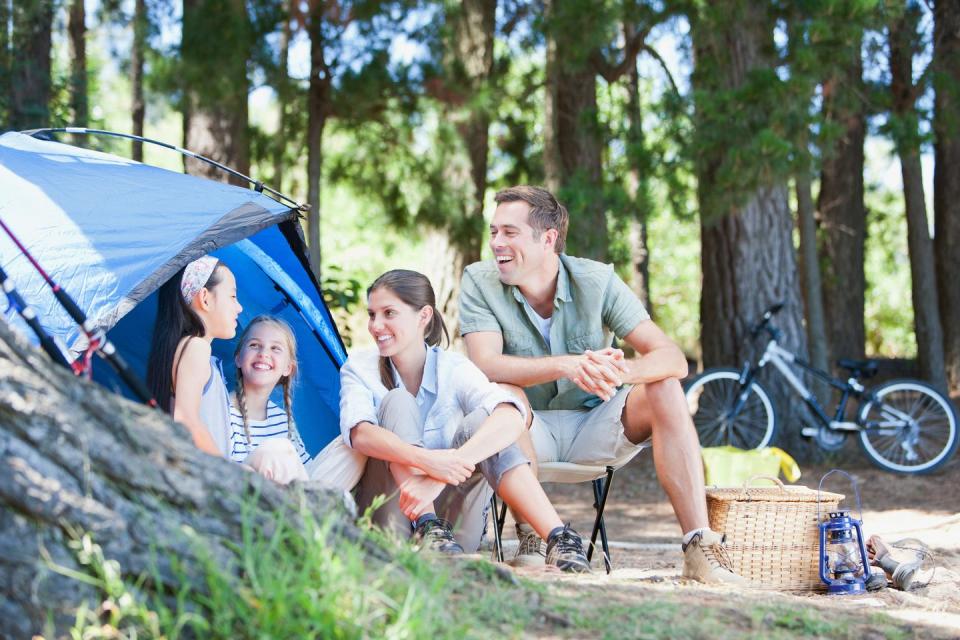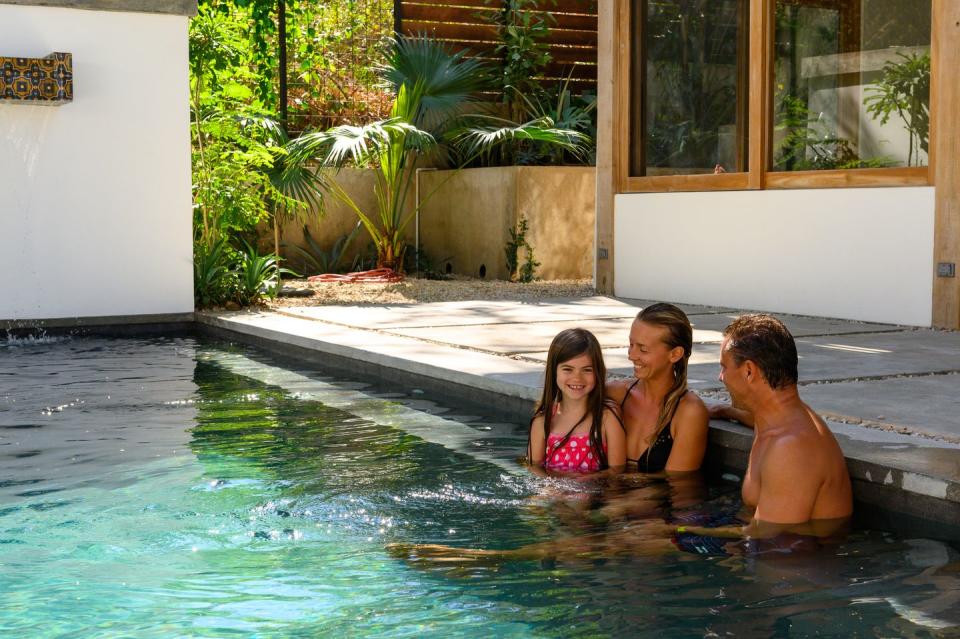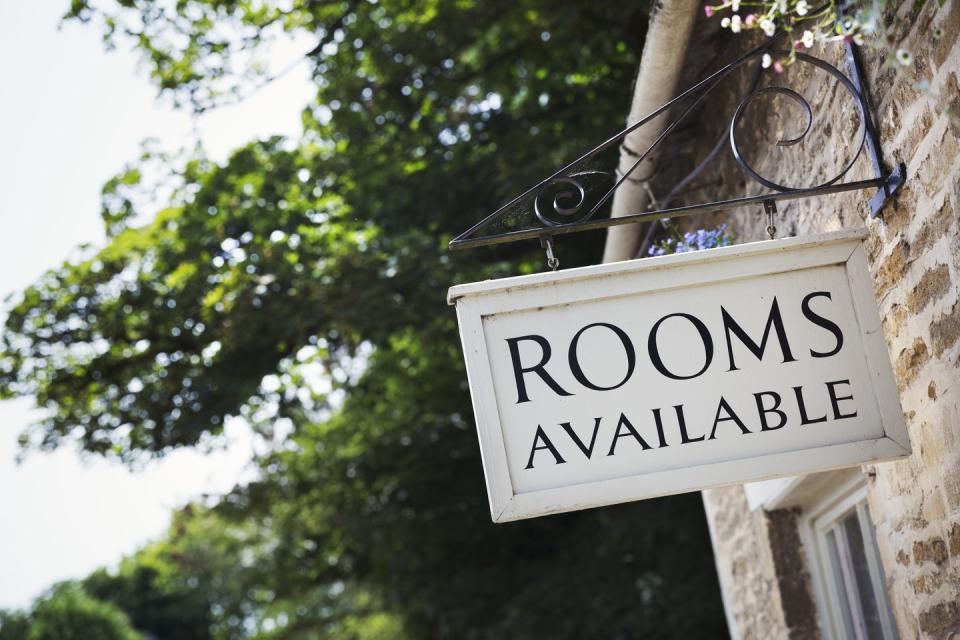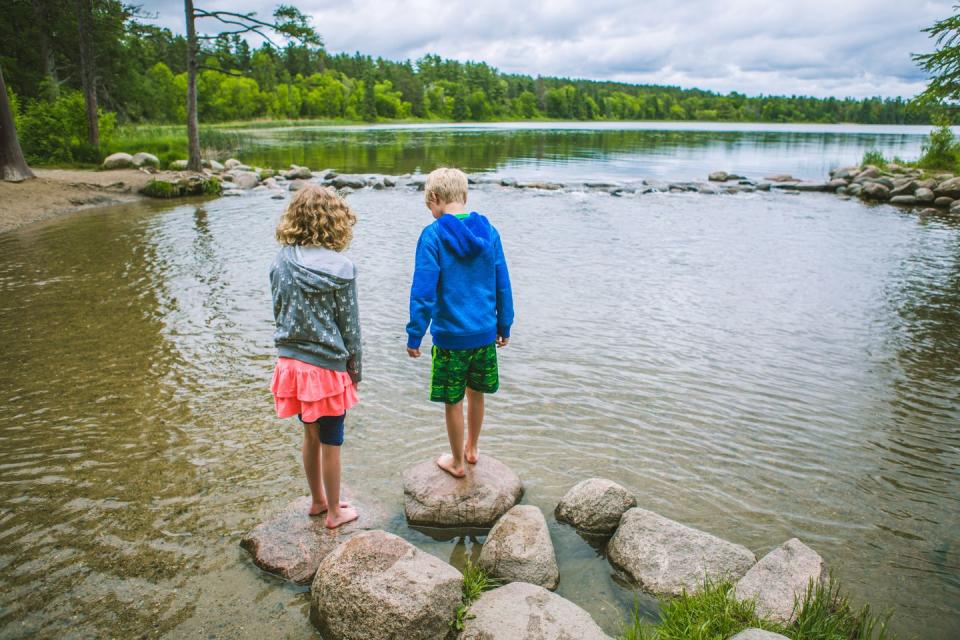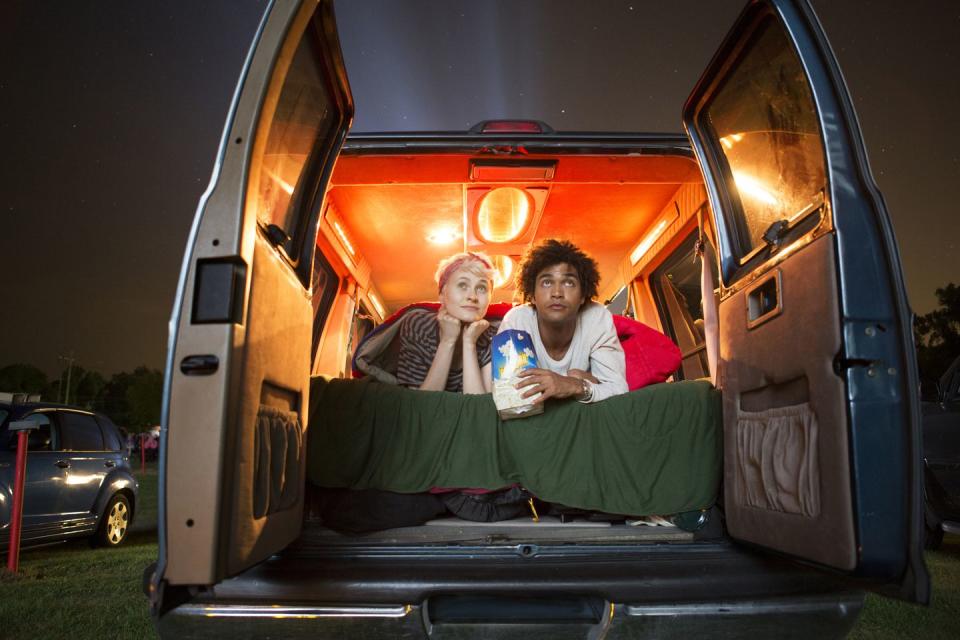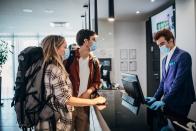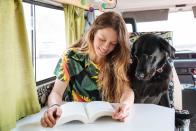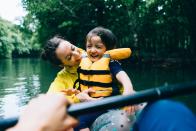How to Plan a Socially Distant (and Fun) Road Trip
- 1/15
How to Plan a Socially Distant (and Fun) Road Trip
Summer is in full swing and many Americans are more than ready for a vacation. With COVID-19 making people question the safety of airline travel, many are swapping the runway for the highway and opting for a good old-fashioned family road trip. Cars are the top mode of transportation for those traveling this summer, according to AAA’s travel forecast. Nearly one in three Americans are still planning on taking road trips this summer, compared to the same time last year. With airlines limiting flights and gas prices remaining fairly low, it makes sense to get out on the road for a trip. A survey from Nissan shows that 71 percent of travelers are more comfortable traveling in their car than flying this summer. “I would suggest traveling locally, using the car as the main source of transportation,” says Dr. Nikola Djordjevic, MD, medical advisor at HealthCareers. “Driving with people we know and being sure they stayed safe before the vacation will allow us to avoid catching COVID-19.”
Travelocity predicts a new travel trend will appear this summer: the safecation, a mini getaway to destinations that are cleared for safe travel during this time. “Our research shows that families are going to be the first to return to travel this summer, but safety will definitely be top of mind,” says Katie Junrod, general manager for Travelocity. “Many parents have told us they plan to stay at a hotel because they are looking for free cancellation policies that give them a sense of control, but alternative accommodations such as campsites and cabins offer a safe space away from crowds with amenities that can really appeal to families right now.” Even though your summer vacation is looking different this year, you can still make ever-lasting memories with your family along the way. Here are some tips on staying safe while having a fun, socially distant road trip.
Cavan Images - Getty Images - 2/15
Do your research.
It may sound fun to be spontaneous on your trip, but this isn’t the time to do it. Your options on where to eat and stay may be limited, so you’ll want to create a solid itinerary before you leave home. You may be a pro at using navigation on your phone, but it won’t be very helpful if you’re driving through an area without cell service. Pack a map and download any key tips before you leave.
There are city and state-specific regulations for travel, so it’s important to become familiar before you arrive. “The days of simply choosing a state, packing up and going, are gone for now,” says Tracey McGoughy, independent travel agent with Carib Compass Travel & Wellness. “If you want to get out and visit another state, go to the state and the city government's website first to gather information on the coronavirus in that area. Look at statistics and restrictions.”
You’ll want to avoid states where you have to quarantine for 14 days upon your return home, unless you can work that into your schedule. Finally, keep an eye on outbreak hotspots, which are regularly updated by the CDC.
Thanapol Mongta / EyeEm - Getty Images - 3/15
Prepare your car.
It’s easy to remember to wash your hands, but think about all of the contact surfaces in your car. Before you get on the road for your trip, you’ll want to thoroughly disinfect your car. But this isn’t a one-time activity. Leave cleaning supplies in your car so that it's easy sanitize after every stop on your journey.
It’s also good idea to get your car checked out by a local mechanic before you head out on a long drive. You'll want to ensure that your tire pressure is set and all fluids are topped off. Finally, make sure that your car is stocked with an emergency kit just to be safe.
Justin Paget - Getty Images - 4/15
Pack an antibacterial kit.
Masks are required throughout most of the country, so make sure to pack more than you need. If you’re using cloth masks, you'll need to check to see if you can adequately wash them throughout your trip.
Keep hand sanitizer on yourself and in your car so that you can use it throughout your trip. It’s inevitable that you’ll come into contact with germy surfaces, like door handles and gas pumps, so consider a belt bag to make sure you have easy access to disinfecting wipes.
If you have more room, consider extras like an air purifier, trash bags, antibacterial soap and disposable gloves.
Nipon Nuengpanom - Getty Images - 5/15
Limit unnecessary stops along the way.
A quick Kodak moment along the journey is one thing, but stopping for snacks can be avoided. Stock up on nonperishable food and drinks to reduce the times you have to stop on the road. Minimize your trips to grocery by stocking up on essentials in one big trip. This will help in case service areas and restaurants are closed during your drive.
You may want to consider packing a full picnic set or stopping for takeout so that you can find a secluded spot near a beach or park for an impromptu meal. If your journey is long, it’s a good idea to take socially distant breaks along the way. Check out drive-thru zoos, safaris or drive-in movies across the country to unwind.
Westend61 - Getty Images - 6/15
Be flexible.
If you're staying in a hotel, don’t expect the same creature comforts you’re used to. Daily cleaning services are probably out of the question, and the outdoor pool you were expecting to relax in may be closed. Ask about contactless options to reduce your time around others. Many large hotel chains have published their cleaning procedures and standards online.
Make sure your reservations have a free cancellation feature in case something comes up before your departure. Trip insurance is a must—just make sure to read the fine print surrounding COVID exclusions.
This is a unique time to travel, so having a plan B and sometimes C may be necessary. In case things turn out to be closed, pack books, board games, puzzles and iPads to pass the time.
South_agency - Getty Images - 7/15
Get behind the wheel of an RV.
If you’re not comfortable staying in a hotel or renting a home, consider renting an RV to limit exposure to others. "As travel restrictions continue, many families are exploring RV travel as a way to vacation in a self-contained environment where they can have complete control over where, how and with whom they travel,” says Jer Goss, CEO of Goss RV. “For those wanting a little more luxury, high-end RV resorts offer unbelievable amenities and ample distancing. RVs afford people a sense of freedom, privacy and control that many travelers are craving right now."
When you’re deciding what kind of comforts you want in your RV, think about hygiene first. If you don’t want to look for campgrounds with open amenities, consider an RV that has a shower and toilet. “Nothing feels safer than living in your own space,” says Marianne Edwards, co-founder at Boondockers Welcome. “You're the only one using your kitchen, don't have to use public washrooms (which may not even be available), can wash your hands as often as you like, and perhaps best of all, sleep in your own bed every night."
A survey from Nissan found that 28% are thinking of renting or buying a vehicle capable of towing. What many folks may not realize, however, is that a typical family vehicle they may already own can tow many of today’s lightweight RVs. Before you get on the road, ensure that your trailer and vehicle are a match. Check all of your fluids, since towing puts an extra strain on a vehicle, especially in the summer. Finally, check the tire pressure for your vehicle and the trailer (and don’t forget the spare).
Romona Robbins Photography - Getty Images - 8/15
Set up camp.
Vacationers are turning to campgrounds for a responsible, safe getaway, according to Caleb Hartun, the CEO of Campspot. A rustic tent site in a dark sky region with no internet access may be your cup of tea. Or, perhaps a canvas glamping tent with a kitchenette, queen bed, and lake access is more your style. There’s no one right way to camp. “Camping doesn’t have to mean trekking cross-country to a remote area,” says Hartun. “There are likely many wonderful campgrounds and RV parks within a short driving distance to where you live.”
Hartun also recommends researching nearby and onsite amenities. “Some parks shine based on the amenities they offer directly on their properties, such as expansive waterparks, laser tag areas, or themed weekend events,” he says. “Other campgrounds are desirable for their proximity to historic sites, national parks or famous attractions. Both factors are important to consider when planning where to stay, based on your appetite for adventure versus relaxation.”
Many campsites require reservations and are limiting visitors, so be sure to check before you book. If you’d like some more amenities, glamping allows you to enjoy the outdoors without sacrificing luxury. Either way, you can grill outdoors, play games and enjoy s’mores by the campfire.
Tom Merton - Getty Images - 9/15
Don't forget about Fido.
If your pups are coming on the road with you this summer, there are considerations you’ll need to make to keep them safe. “You can imagine that not a lot of people are leaving their pets at home after being with them a lot more in the recent months,” says Rob Jackson, chief pet protector at Healthy Paws. “On top of that, pet parents are hesitant to bring in a dog sitter or even send their pet to a kennel due to the potential risks of coronavirus.”
He recommends getting your pet used to traveling ahead of time. “Practice trips will help desensitize them to the car and alert you to any motion sickness or anxiety that vets can help manage before your trip,” he says.
And remember—social distancing applies to your pets as well. “Keep them away from pets outside of your household, keep six feet apart and monitor for any coronavirus symptoms,” he says.
Manuel Padilla Salguero / EyeEm - Getty Images - 10/15
Rent a home.
Social distancing is pretty challenging in high-rise hotels with long check-in lines, crowded elevators and packed restaurants. Renting a private property through Airbnb or VRBO will allow you to bring your own linens, disinfect the space you’re in and limit exposure from others. You can also bring your own groceries if you’d prefer to eat at home.
Since public and even community pools may still be closed depending on where you are in the country, people are struggling to find a way to cool off in the hot, summer months. “Find kid-friendly houses on VRBO by filtering results to include listings that have a private pool and that are highly rated for families,” says Cindy Richards, editor-in-chief at TravelingMom.com. “There’s something so relaxing for parents to sit on the deck and sip a glass of wine while the kids splash around." Whether the house is across the country or four blocks away, it's a different house and a change of scenery.
stockstudioX - Getty Images - 11/15
Consider a bed & breakfast.
If camping or staying in an RV isn’t right for you, there are still accommodations you can enjoy on your trip. You’ll want to avoid hi-rise hotel that have packed elevators, hallways, check-in lines and more.
Kristin Fintel, innkeeper at Chehalem Ridge Bed & Breakfast in Oregon, has made plenty of changes to ensure that their visitors are safe. “We try to serve breakfast outside, at separate tables, and when we can’t, we have three separate eating areas inside where guests can dine alone,” she says. One of the other benefits of bed & breakfasts are the low occupancy. “We only have five rooms, so there’s never more than 10 guests,” she says.
One other perk: you’ll enjoy free expert insights from local innkeepers to help you plan your day, tell you what’s open in the area and which restaurants have outdoor seating.
Mint Images - Getty Images - 12/15
Spend as much time as possible outdoors.
Irina Zusman, travel expert and COO of BagsAway luggage storage, recommends that travelers plan vacations around the local weather. “Choosing a location and destination that will have nice, temperate weather allows families to take advantage of the social distancing opportunities afforded by staying outdoors,” she says.
Instead of dining in, Zusman encourages taking a carryout meal to a local spot to set up a picnic. “Make sure not to choose a locale that's too hot or the heat will zap the energy right out of the kiddos,” she says.
Westend61 - Getty Images - 13/15
Visit a national park...
For those seeking the great outdoors, many national parks have reopened. Caveat: expect state and national parks to be crowded. According to a survey from FinanceBuzz, 47% of campers plan to stay at a state park and 41% expect to camp at a national park. Try to go during the week and either early or late in the day when it’s usually less crowded.
While many parks are booking time-specific entry, others aren’t. Going early is a good way to ensure that the park doesn’t stop admission early. Don’t show up to a park without a reservation, whether you’re just there for the day or camping overnight.
Ippei Naoi - Getty Images - 14/15
...or check out a state park.
If the national parks are too crowded for your liking, visit the smaller, often less-trafficked version. State parks offer hiking, biking, fishing, and camping adventures, too—and they’re often free. “They offer a great opportunity to get outside, take a bike ride or hike and reconnect with loved ones,” says Richards. “Check your state’s rules for fishing licenses before baiting the hook. Some states require kids as young as 10 to have a license.”
Annie Otzen - Getty Images - 15/15
Go off the beaten path.
National parks and major tourist attractions will likely be packed, so it’s a good idea to find more isolated outdoor destinations and do some hiking in the mountains, swimming in the lake, kayaking in a river or exploring a forest. You may also want to consider an off-season location to avoid crowds. If you’re camping or hiking, apps like AllTrails can help you find areas that are more remote.
Cavan Images - Getty Images
This season will require a lot of extra planning to stay safe.

 money
money 